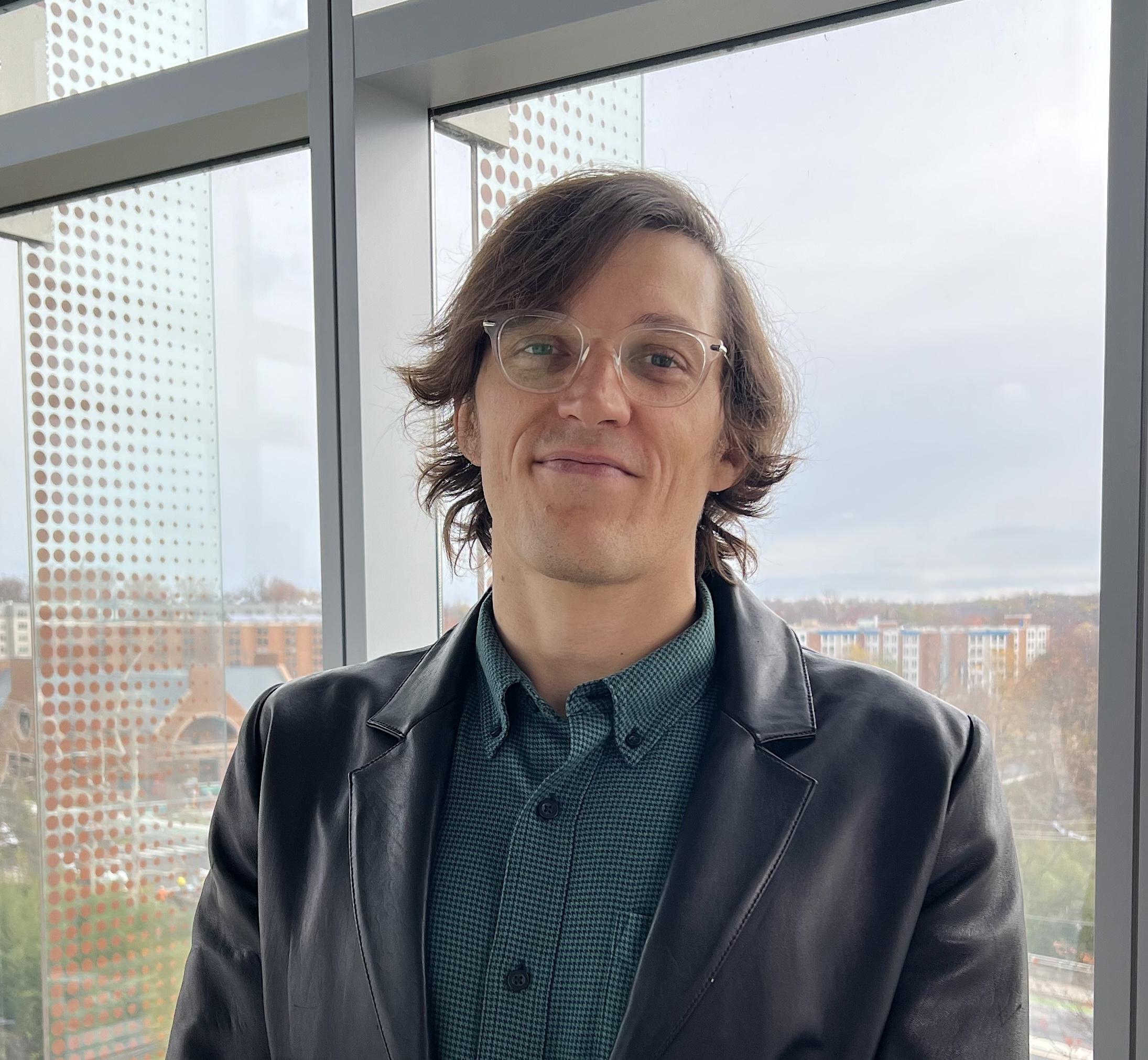
At the crossroads of quantum chemistry and machine learning, researchers are advancing novel discoveries in materials science to improve energy efficiency—new knowledge that could revolutionize how we tackle global challenges like sustainability and energy production.
Phillip Pope, a sixth-year doctoral student in computer science at the University of Maryland, is active in this area, combining his skills in machine learning with a strong commitment to combating the climate crisis.
A native of St. Petersburg, Florida, Pope has seen firsthand the devastating impacts of climate change.
“My parents regularly face hurricanes, and the threat of intense weather is a very visceral experience for me,” he says. “I believe that climate change is the cause, and we need to do more as academics to help reduce our carbon footprint.”
Pope is currently working on developing methodologies to speed up algorithms in quantum chemistry. The vision of this work is to reduce reliance on fossil fuels, particularly through the discovery of catalysts, for example, to replace platinum in hydrogen fuel production.
Hydrogen fuel is produced by splitting water via electrolysis, a process that uses an electric current to separate water into hydrogen and oxygen. Platinum is typically used as a catalyst to speed up this process, but its scarcity and high cost limit the scalability of hydrogen production, Pope says.
“As it stands, there’s not enough platinum in the world to meet the projected hydrogen demands,” he says. “Wouldn’t it be great if we could find cheaper, more efficient catalysts to advance this technology?”
The methodological approach Pope is developing to address this challenge is designed to be universally applicable to any chemical system at the quantum level. The essence of the approach is to use machine learning to predict better initializations for algorithms in computational chemistry, leading to faster convergence and allowing researchers to work more quickly.
“Electrons are the glue for matter, and the equations governing them are known, but are too complex to solve analytically,” he says. “My research uses machine learning to speed up these algorithms, getting us closer to solutions faster.”
Pope’s journey into the use of quantum and AI to tackle climate change began at the New College of Florida, where he studied math, physics, and chemistry, and later completed a master’s in data science.
His passion for environmental research was ignited in a University of Maryland class on AI and existential threats to humanity, taught by David Jacobs, a professor of computer science, leading him to focus on machine learning applications in quantum chemistry with a sustainability lens.
Now, as Pope’s co-adviser, Jacobs admires both his research and dedication to addressing societal challenges.
“This is an important area, and I strive to support students like Phillip who want to direct their research toward these critical problems,” says Jacobs, who also has an appointment in the University of Maryland Institute for Advanced Computer Studies. “He’s shown great courage and dedication by transitioning from mainstream machine learning to tackle problems that could have a significant societal impact.”
Pope is also collaborating with co-adviser Hong-Zhou Ye, an assistant professor in the Department of Chemistry and Biochemistry. Ye explains that chemistry is fundamentally about studying atoms and molecules, which are governed by quantum mechanics. His group focuses on developing computational methods and software to simulate chemical processes by solving quantum mechanical equations.
Ye and Pope have been working together to develop a graph neural network-based machine learning model aimed at predicting spin and charge densities in molecular systems. This model has the potential to bypass the need for solving quantum mechanical equations within density functional theory, making simulations more efficient.
Pope’s innovative approach has already garnered attention, including a presentation at last year’s prestigious Conference on Neural Information Processing Systems.
As he nears the completion of his Ph.D. next spring, Pope plans to continue his work through a postdoctoral position and future academic roles. His dedication to sustainability and unique approach to quantum chemistry fuel his quest to make a lasting impact on the world.
“Academics have a responsibility to use their privilege to help the world,” he says. “This is my way of using my expertise to advance solutions for a greener future."